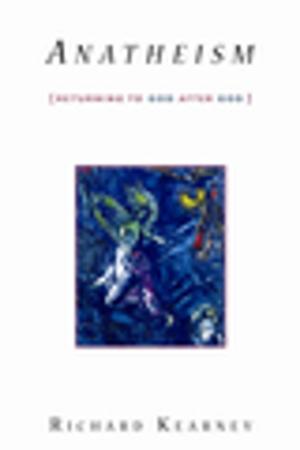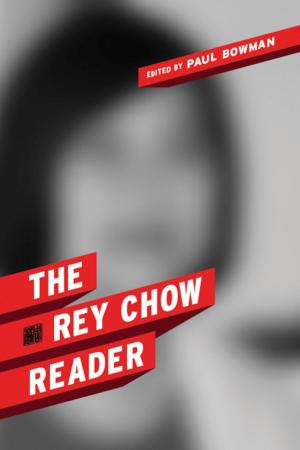Torn at the Roots
The Crisis of Jewish Liberalism in Postwar America
Nonfiction, Religion & Spirituality, Judaism, History, Americas, United States, 20th Century| Author: | Michael Staub | ISBN: | 9780231506434 |
| Publisher: | Columbia University Press | Publication: | February 18, 2004 |
| Imprint: | Columbia University Press | Language: | English |
| Author: | Michael Staub |
| ISBN: | 9780231506434 |
| Publisher: | Columbia University Press |
| Publication: | February 18, 2004 |
| Imprint: | Columbia University Press |
| Language: | English |
When Jewish neoconservatives burst upon the political scene, many people were surprised. Conventional wisdom held that Jews were uniformly liberal. This book explodes the myth of a monolithic liberal Judaism. Michael Staub tells the story of the many fierce battles that raged in postwar America over what the authentically Jewish position ought to be on issues ranging from desegregation to Zionism, from Vietnam to gender relations, sexuality, and family life. Throughout the three decades after 1945, Michael Staub shows, American Jews debated the ways in which the political commitments of Jewish individuals and groups could or should be shaped by their Jewishness. Staub shows that, contrary to conventional wisdom, the liberal position was never the obvious winner in the contest.
By the late 1960s left-wing Jews were often accused by their conservative counterparts of self-hatred or of being inadequately or improperly Jewish. They, in turn, insisted that right-wing Jews were deaf to the moral imperatives of both the Jewish prophetic tradition and Jewish historical experience, which obliged Jews to pursue social justice for the oppressed and the marginalized. Such declamations characterized disputes over a variety of topics: American anticommunism, activism on behalf of African American civil rights, imperatives of Jewish survival, Israel and Israeli-Palestinian relations, the 1960s counterculture, including the women's and gay and lesbian liberation movements, and the renaissance of Jewish ethnic pride and religious observance. Spanning these controversies, Staub presents not only a revelatory and clear-eyed prehistory of contemporary Jewish neoconservatism but also an important corrective to investigations of "identity politics" that have focused on interethnic contacts and conflicts while neglecting intraethnic ones.
Revising standard assumptions about the timing of Holocaust awareness in postwar America, Staub charts how central arguments over the Holocaust's purported lessons were to intra-Jewish political conflict already in the first two decades after World War II. Revisiting forgotten artifacts of the postwar years, such as Jewish marriage manuals, satiric radical Zionist cartoons, and the 1970s sitcom about an intermarried couple entitled Bridget Loves Bernie, and incidents such as the firing of a Columbia University rabbi for supporting anti-Vietnam war protesters and the efforts of the Miami Beach Hotel Owners Association to cancel an African Methodist Episcopal Church convention, Torn at the Roots sheds new light on an era we thought we knew well.
When Jewish neoconservatives burst upon the political scene, many people were surprised. Conventional wisdom held that Jews were uniformly liberal. This book explodes the myth of a monolithic liberal Judaism. Michael Staub tells the story of the many fierce battles that raged in postwar America over what the authentically Jewish position ought to be on issues ranging from desegregation to Zionism, from Vietnam to gender relations, sexuality, and family life. Throughout the three decades after 1945, Michael Staub shows, American Jews debated the ways in which the political commitments of Jewish individuals and groups could or should be shaped by their Jewishness. Staub shows that, contrary to conventional wisdom, the liberal position was never the obvious winner in the contest.
By the late 1960s left-wing Jews were often accused by their conservative counterparts of self-hatred or of being inadequately or improperly Jewish. They, in turn, insisted that right-wing Jews were deaf to the moral imperatives of both the Jewish prophetic tradition and Jewish historical experience, which obliged Jews to pursue social justice for the oppressed and the marginalized. Such declamations characterized disputes over a variety of topics: American anticommunism, activism on behalf of African American civil rights, imperatives of Jewish survival, Israel and Israeli-Palestinian relations, the 1960s counterculture, including the women's and gay and lesbian liberation movements, and the renaissance of Jewish ethnic pride and religious observance. Spanning these controversies, Staub presents not only a revelatory and clear-eyed prehistory of contemporary Jewish neoconservatism but also an important corrective to investigations of "identity politics" that have focused on interethnic contacts and conflicts while neglecting intraethnic ones.
Revising standard assumptions about the timing of Holocaust awareness in postwar America, Staub charts how central arguments over the Holocaust's purported lessons were to intra-Jewish political conflict already in the first two decades after World War II. Revisiting forgotten artifacts of the postwar years, such as Jewish marriage manuals, satiric radical Zionist cartoons, and the 1970s sitcom about an intermarried couple entitled Bridget Loves Bernie, and incidents such as the firing of a Columbia University rabbi for supporting anti-Vietnam war protesters and the efforts of the Miami Beach Hotel Owners Association to cancel an African Methodist Episcopal Church convention, Torn at the Roots sheds new light on an era we thought we knew well.















